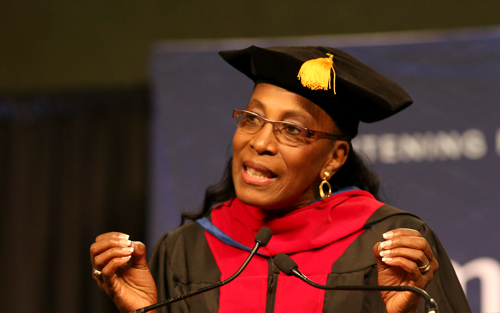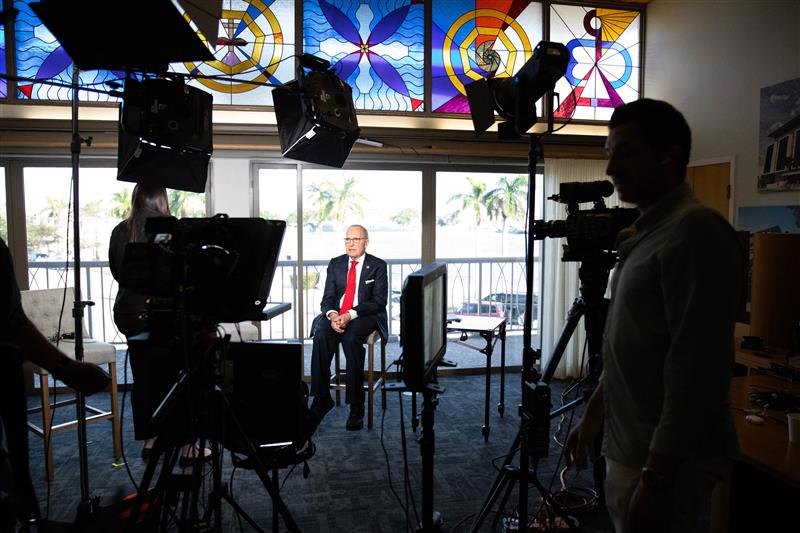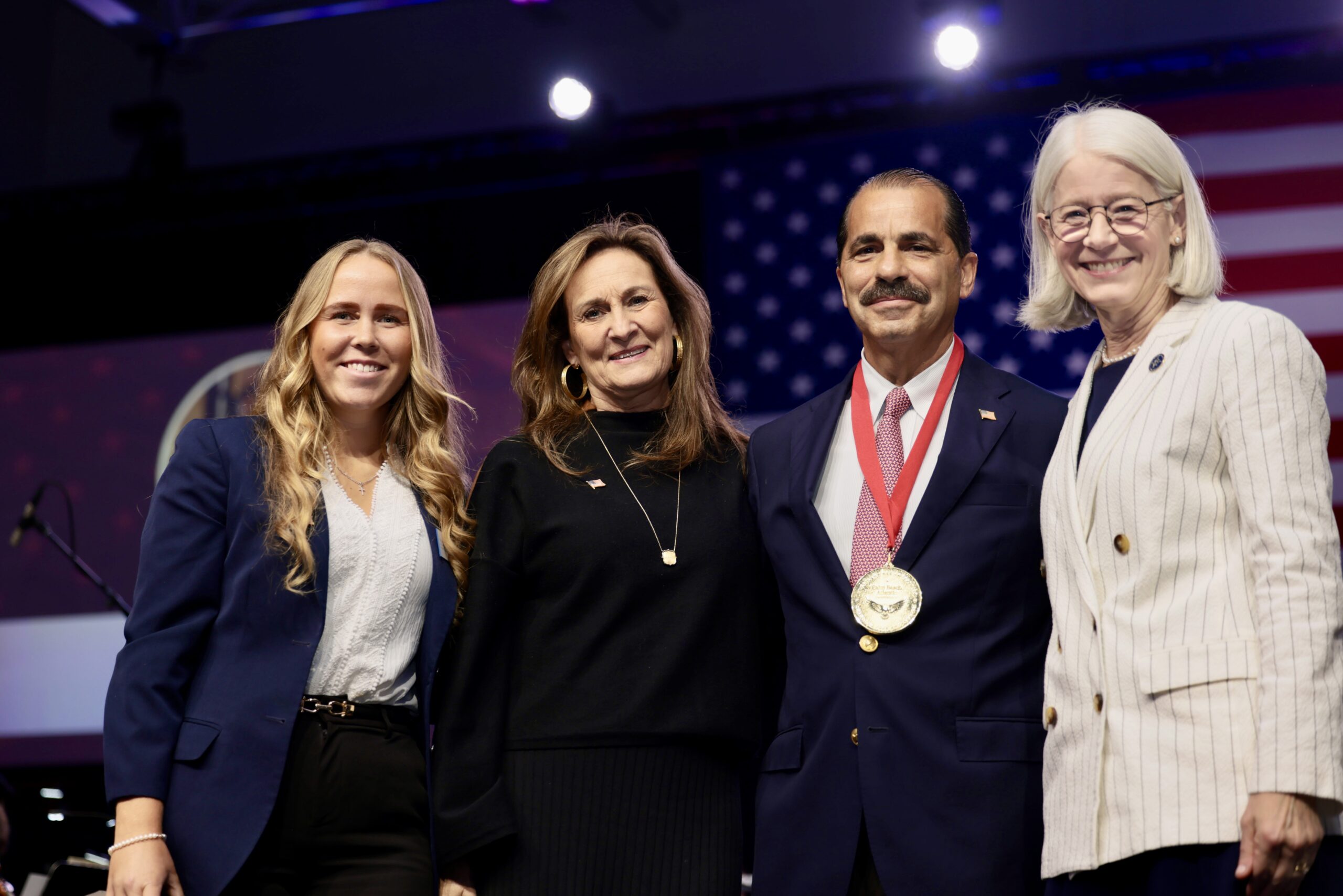Palm Beach Atlantic celebrated 575 graduates during two ceremonies Saturday at the Palm Beach County Convention Center.
This spring marked the University’s first in-person commencement since the COVID-19 pandemic began, and the first in-person ceremonies with President Dr. Debra A. Schwinn presiding. PBA Orlando recognized graduates with a ceremony last week at First Baptist Church Orlando.
Dr. Madeline Manning Mims, a record-breaking, decorated Olympic runner and chaplain to professional athletes, served as the commencement speaker for both West Palm Beach ceremonies. Mims’ remarks were preceded by graduate reflections from Krystal White, who was named outstanding graduate in the both the School of Arts & Sciences and School of Ministry.
Before White delivered her remarks, she paused for a moment of gratitude for the blessings of the past year. While she acknowledged the heartaches, she said she did not want the blessings to be overshadowed by the trials.
“The biggest blessing that I see is the community that not only survived the pandemic, but has thrived,” White said.
When PBA opened for in-person instruction this fall, White and her roommates found themselves among the first students on campus to go into quarantine. The community stepped up with care baskets, special cards and daily Zoom calls with the university president. Schwinn continued those daily Zoom calls with students in quarantine or isolation every day throughout the semester.
The lesson COVID-19 taught White about community, she said, is that “you find it not by looking for it but by deciding to be it.” She concluded with a word of encouragement to her classmates to create community wherever they go next.
Mims spoke to graduates about the role of adaptation, growth and resilience in the search for the purpose of life. Mims grew up poor in inner city Cleveland, where most people lived with no higher aspirations than day-to-day survival, she said. Her mother cleaned white people’s homes for a living and made a difference in her children’s lives with her love, discipline and faith, said Mims, who is African American.
As Mims grew up, she began to excel in track and field. When she set a new record for the 400-meter relay as a 15-year-old high school junior, she was thrust into the world of elite sports. Her awareness of and perspective on the world quickly grew, she said.
“This challenge was helping me to grow mentally, physically and spiritually,” Mims said. “I was being forced to step out and step into something that was new to me.”

She knew she needed to adapt to live for more than survival. Spiritually, she reminded herself that she was created with love to glorify God and give His love to others. During challenging times, she leaned into the resilience she developed through her training as an athlete.
It was through her interactions with athletic rival and Yugoslavian runner Vera Nikolic that Mims discovered her true purpose in life. Mims was the best half-mile runner in the Western Hemisphere, and Nikolic was the best half-miler in the Eastern Hemisphere. In a contest a year before the 1968 Mexico City Olympics, the two women were racing when Mims felt excruciating pain and realized that she was stumbling face-first into the infield. She reasoned that Nikolic had pushed her and, after some unkind thoughts, got up and struggled to the finish line, where she out-leaned Nikolic to finish first.
Mims had a talk with God about it.
“The Lord just let me have my temper tantrum,” Mims said. “He said, ‘Madeline, you never have to hate anyone to be No. 1. In due time, I will exalt you.’”
The following year at the Olympics, Mims looked for Nikolic and learned that Nikolic ran 300 meters of her race, walked off the track and out of the stadium, and tried to end her life by jumping off a bridge. Yugoslavian delegates had told Nikolic that she must come back to her country with nothing less than the gold medal, and Nikolic cracked under the pressure, according to Mims.
Later at the Olympics, Mims saw Nikolic and felt prompted by the Holy Spirit to walk over and speak to her one-time rival. Mims began to get nervous because of the language barrier. She started by offering encouragements like “Vera, you’re young,” and “You can put this behind you,” but Nikolic responded to nothing.
Then Mims told her, “You’re one of the greatest gifts God has created in the world.” Tears began to stream down Nikolic’s face, and the two women embraced.
Mims went to her race and became the first American woman to win a gold medal in the 800 meter. Her time of 2:00.90 set a new Olympic record, and Mims became the first Black woman to win the 800 meter. She remains the only American woman to earn gold in the event.
Years later when Mims was competing in Germany, Nikolic’s coach approached her and said Nikolic was institutionalized. Nikolic had only recently broken her silence with the words, “Madeline came back on her way to her finals.” That’s when Mims heard Nikolic calling her name. The two ran to each other and hugged. Nikolic told her, “I found God.”
In that moment, Mims learned that her purpose was more than running.
“My purpose was to be at the right place at the right time to give words of life to someone who was dying,” she said.
Mims concluded with a charge to the graduates to go and do likewise, adding “Go forth in the name of Jesus with your head held high because God is with you, and God is for you.”


